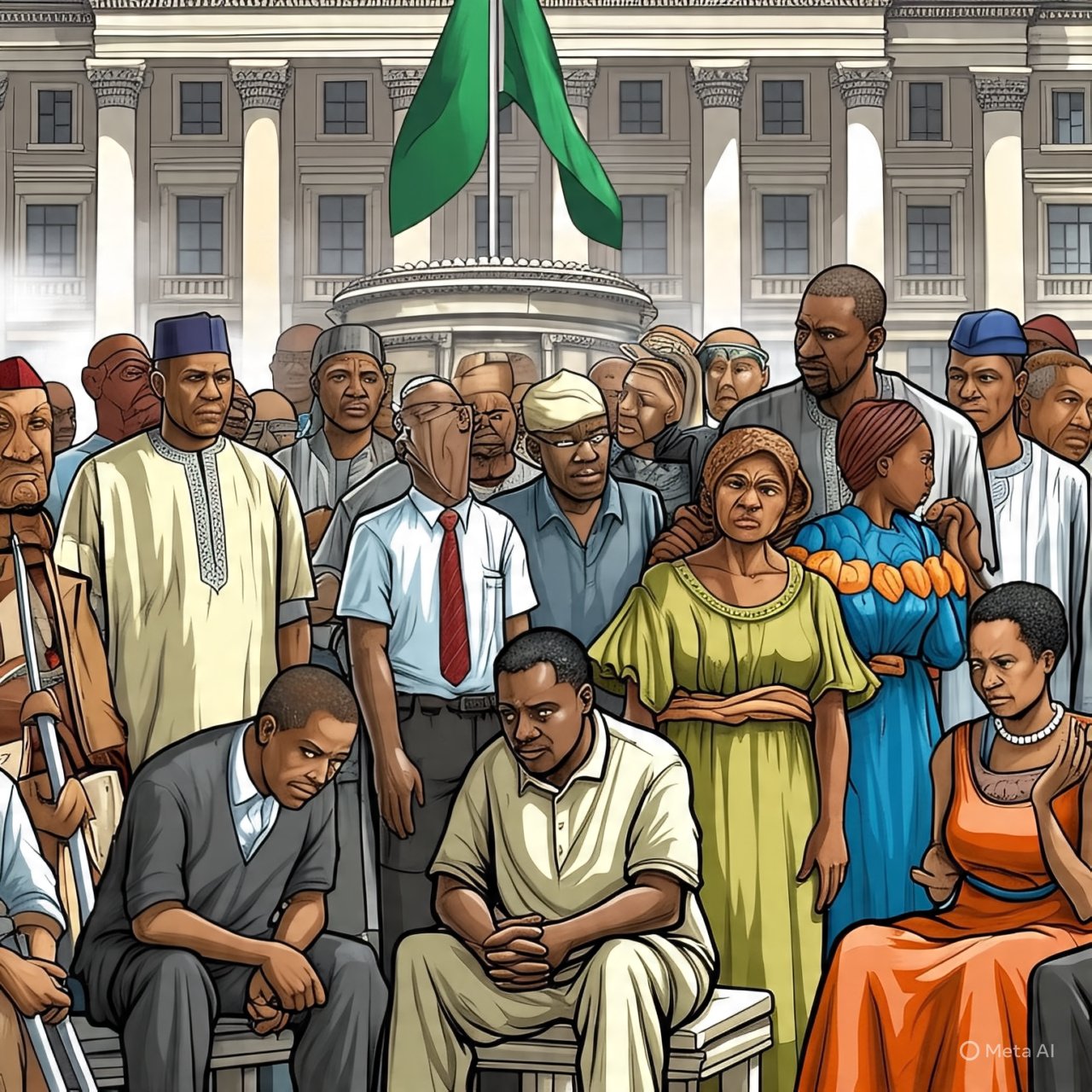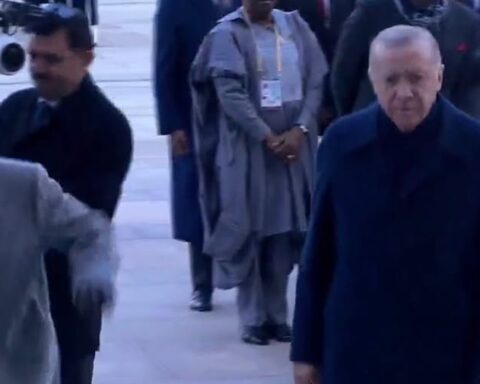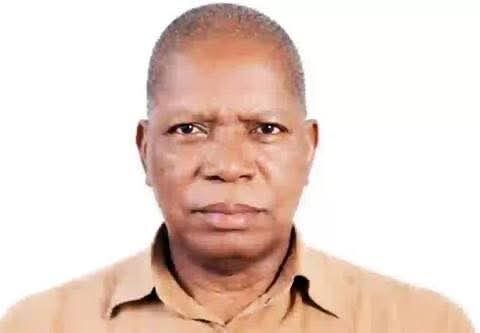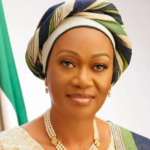By Emmanuel Gandu
HIGHLIGHTS
(1) Setting the tone
(2) Expectations and achievements, challenges and failures
(3) Penury, austere disposition, and giant strides of Nationalist leaders (1960 – 1979)
(4) Dysfunctional/corrupt practices of military and political leadership (1980 – 2025)
(a) Sani Abacha – the grand master
(b) Muhammadu Buhari – from Saint to Sinner
(c) Bola Ahmed Tinubu – sophistication of a Machiavellian democrat
(5) Outrageous pension scheme for Governors and legislators
(6) Why these pension schemes/laws are condemnable
SETTING THE TONE
“They have put a knife on the things that held us together and we’ve fallen apart” – Chinua Achebe in ‘Things Fall Apart’.
Little did Chinua Achebe know that his lamentation of the white missionary’s dethronement of the Igbo culture would turn out to be a definitive metaphor for the Nigeria of today. Nigeria is at a crossroads. The country is at the brink politically, economically, religiously, socially, and security wise.
These are times for patriotic Nigerians to put hands on deck in order to salvage whatever remains to be saved. If people keep silent, their muteness will be treasonable.
This presentation is an attempt to highlight the positive contribution to national development by the Nationalists and founding fathers, while ex raying the negative, corrupt and extreme gullibility of Nigeria’s contemporary leadership.
The presentation seeks to bring to the fore the negligence of the contemporary leadership in their failure to manage Nigeria’s diversity and plurality, political, and socio economic well being that had led to the present conundrum of an endless albatross.
EXPECTATIONS, ACHIEVEMENTS, CHALLENGES AND FAILURES
Nigeria’s cream of past leaders of Sir Ahmadu Bello, General Yakubu Gowon, Sir Abubakar Tafawa Balewa, Dr. Nnamdi Azikiwe, Chief Obafemi Awolowo, Alhaji Aminu Kano to mention just a few, had conducted themselves in such high level of prudence in the management of Nigeria that they left a legacy of unity, infrastructure, sincerity of purpose, peace and tranquility, and the preservation of life and property.
These Nationalists were incorruptible, highly revered, reliable and trustworthy. They were men of high integrity, upright and of impeccable character. They were servant leaders.
Without doubt these qualities exhibited have remained unrivaled by any other crop of leaders in the history of Nigeria.
Lamentably, the prevailing situation in Nigeria brought about by the contemporary gullibility of successive crop of leaders leaves much to be desired.
Regrettably, Nigeria, hither to believed, seen and dubbed to be the giant of Africa is now a shadow of herself.
Unfortunately, both successive military and political leadership have continued to plunder the resources of Nigeria to such a frightening magnitude that the once ‘biggest economy’ on the African continent is now a beggar nation.
Unable to feed her teaming population, the bitter truth forced down our withered throats is the fact that Nigerians are now “feeding from the dustbin” – apology to Umaru Dikko.
PENURY, AUSTERE DISPOSITION AND GIANT STRIDES OF NATIONALIST LEADERS (1960 – 1979)
That the display of penury and austere lifestyle of Nigeria’s foremost Nationalist leaders of the 60’s to the late 70’s is, unfortunately the abandoned legacy that the contemporary gulibility in the polity have failed to appreciate.
The giant strides witnessed in developmental projects spread across the country is a testimony to the fact that these Nationalist leaders bequeathed lasting legacies to future generations of Nigerians.
At his death, *Sir Ahmadu Bello* had no property nor house of his own anywhere in the country except a very old mud building family house at his Rabah village in Sokoto.
After the overthrow of his government in a 1975 military coup, then head of state *Gen. Yakubu Gowon* had no property, no house, no money of his own despite his nine (9) years as head of state of Nigeria.
Just like the acronym that spelt his name, his interest was to Go On With One Nigeria (GOWON). The coup plotters stroke while Gowon was attending that year’s OAU conference and had to be flown to London by a friend to be rejoined by his wife and children. He immediately enrolled for his undergraduate degree that took him to the PhD.
While a student, he daily joined the queue in the dining hall for the food ration meant for the students.
Gowon had to survive on the benevolence of some African leaders as they could not watch him become a beger on the streets of London.
After his studies, and on return to Nigeria, his family had no home to lay their heads. The situation was so bad that his friends, people, and government of Plateau State embarked upon a joint philanthropic project to build a house for Gowon which never got completed as at today.
*Chief Obafemi Awolowo* as a frontline leader of the Western Region build the Cocoa House, the first television station in Africa, and other great projects.
As the premier of the Northern Region, the Sardauna of Sokoto Sir Ahmadu Bello constructed the Ahmadu Bello University, and so many other monumental projects spread across Zaria, Kaduna, Kabba, Kano and the entire North without any project in his home town Sokoto.
The roads, flyover bridges, stadiums, airports and such facilities that made Lagos the pride and business hub in the West African sub region is the product of the Gowon administration.
During these times, Nigeria’s economy was dependent on agricultural products – Cocoa in the West, Ground nut and Cotton from the North, Palm oil from the East, and Rubber from the South.
Little wonder, the Nigerian #aira exchanged at a parallel level with the British £Pound and the American $Dollar, but today you need #1,500.00 for one dollar.
All these laudable achievements was possible due to the prudent management of Nigeria’s resources by these Nationalist leaders.
DYSFUNCTIONAL/CORRUPT PRACTICES OF MILITARY AND POLITICAL LEADERSHIP ( 1980 – 2025)
Lamentably, Nigeria today is unable to feed her population, manufacturing industries have collapsed and relocated to neighbouring countries like Ghana, unemployment is at its highest ever, insecurity, destruction of life and property and terrorism is the order of the day as Nigeria is the 3rd most terrorised country in the world (World terrorism index 2020/21).
The school system have collapsed due to incessant strikes and closure, over 20 million children are out of school.
Citizens are dying in droves due to hunger, deprivation and diseases. The surviving Nigerians are scavenging and eating from the dustbin, while the few men and women that can pay their way migrate to outside countries in search of a better life.
The few employed workers are owed salaries for up to several months and years unend. Besides, the take home pay for the very employed cannot take them home.
Unfortunately, Nigeria as the world’s 7th biggest oil producer have no functional refinery for decades despite spending a whopping $26 billion on turn around maintenance (TAM) by the 2015 – 2023 Buhari led government. This $26 billion according to oil industry experts could have built three (3) brand new refineries of same capacity in same Port Harcourt, Warri and Kaduna.
Unfortunately, these levels of missmanagement have led Nigeria into importation of petroleum products thereby leading to series of foreign debts that have risen to #77 trillion when Muhammadu Buhari was handing over power to Bola Tinubu in May 2023.
Dismissally, corrupt leaders have continued to be recycled in governance despite series of corruption cases in court and anti graft agencies like the EFCC hanging on their necks.
Worst of all, the Nigerian money bags have abandoned business, entrepreneurship, manufacturing, agriculture, etc in preference for politics.
The prevailing political situation in Nigeria is the survival of the fittest as the political class are deep into the repatriation and export of stolen money abroad for their unborn generations.
Regrettably, politics and political patronage have been so much monetized that political leadership is for the highest bidder.
Worst as it is, neither the military, who appear to most Nigerians as a helpless toothless bull dog under the corrupt manipulative hands of the political class, nor the judiciary, who are, wrongly or rightly said to be the last hope of the common man have been compromised.
Who will salvage Nigeria ?
SANI ABACHA : THE GRAND MASTER
The whirlwind of corruption and misappropriation of funds that swept through the country during the second republic of Aliyu Shehu Shagari presidency was a child’s play compared to the high level magnitude and sophistication employed in the repatriation of funds by the notorious Sani Abacha junta.
Sani Abacha was the Military Head of State, a dictator with one of the worst human rights record in the history of Nigeria.
He took over power in a military coup in 1993 and violently ruled Nigeria until his death in 1998
The total amount of looted funds recovered from the late General Sani Abacha in the past years has been put at $3.65 billion.
This was revealed by an infographic by the BBC with data gathered from the federal government, World Bank, and Transparency International.
Arguably, it’s not certain whether the recovered looted funds have been put into effective use or not, but there are fears of a re – loot of the recovered Abacha loot.
Allegations of misappropriation of the Abacha loot point accusing fingers towards the Muhammadu Buhari presidency.
Whether these allegations are proven or not, your guess is as good as mine.
MUHAMMADU BUHARI : FROM SAINT TO SINNER
Saint Muhammadu Buhari, popularly eulogized and ‘canonised’ as a saint due to his long acclaimed and widely held record and title of the “Mai Gaskiya” (the truthful one) is now allegedly indicted as one of the most corrupt Nigerian leader ever in the history of this country.
If the Abacha loot was said to be crazy, the crop of politicians especially from the world acclaimed Saint Buhari have so much perfected the art of corruption and repatriation of government funds that they ran the country bankrupt as highlighted :
(1) Buhari handed over a Nigeria on 29/5/2023 with a staggering indebtedness of foreign loans amounting to # 77 trillion.
(2) An alleged disclosure of a monthly withdrawal of #500 billion by the embattled Central Bank Governor Godwin Emefiele to the Buhari Humanitarian Affairs minister Sadiya Umar Faruq on the directives of president Muhammadu Buhari.
(3) A # 1.5 trillion and another $ 9,557,312.50 billion was allegedly traced to the NIMASS boss Bashir Jamoh’s personal account. Investigations revealed that Bashir Jamoh is Buhari’s in-law.
(4) It is alleged that the ICPC had allegedly declared Gimba Yau, a former Director of the Federal Mortgage Bank of Nigeria wanted over an alleged $ 65 million fraud. Gimba Yau is married to Fatima, Buhari’s daughter.
MORE SCANDALS
While Buhari was president from 29th May, 2015 to 29th May, 2023, his collaborator in the crime of financial misconduct is Godwin Emefiele, the embattled, arrested detained, suspended, and former Central Bank Governor from 4th June, 2014 to 9th June, 2023.
Established by the CBN Act of 1958, and commenced operations on 1st. July 1959, the Central Bank of Nigeria is the central bank and apex monetary authority.
The governor of the central bank is appointmented by the president to administer the financial structure of the country.
(A) According to the Central Bank Financial Report, the then governor of the bank Mr. Godwin Emefiele was alleged to have printed #23 trillion for Buhari to spend without any appropriation, approval, nor oversight by the National Assembly.
(B) Information hosted on the Central Bank website – www.cbn.gov.ng indicates the following financial misconduct committed by the duo, as contained in the then released CBN Financial Report :
(i) EXCESS PRINTING OF CURRENCY NOTES
One of the CBN’s most significant role during Buhari’s eight year’s presidency is its funding of the federal government’s budget deficits.
The CBN’S loans to the government called “ways and means” advances rose 2900% to #23.3 trillion by 2022.
According to the CBN financial statement, CBN loaned FG #6.2 trillion in 2022 alone through excess printing of the Naira.
This caused president Tinubu, as soon as sworn in to appoint Jim Obazee to examine and probe the operations of the CBN.
As a result of this excess printing of the Naira :
(a) Inflation worsened, and laws on government financing continued to be broken arbitrarily.
(b) The International Monetary Fund (IMF) cited excess Naira in circulation as one of the reasons the exchange rate stability has been elusive in Nigeria.
(c) Nigeria was printing more money than the economy could generate.
(d) Bloomberg quoted Ari Aisen, IMF’s resident representative in Nigeria saying – “There are too many Naira running after insufficient foreign exchange”, meaning that demand far outstrips supply.
(ii) FOREIGN LOANS WITHOUT APPROVALS
The CBN had gone into extension of loans to Muhammadu Buhari without going through the proper channels including sidelining approving institutions like the National Assembly.
The following were the consequences :
(a) These illegal loans rose to #23.18 trillion in 2022.
(b) The CBN gullibly entered into a Securities Lending Agreement with Goldman Sachs and JP Morgan, and as part of the agreement with Emefiele, Goldman Sachs and JP Morgan pledged their holdings on Nigeria’s foreign securities and reserves in return for cash loaned out to Buhari.
(c) From Emefiele and Buhari’s corrupt intentions and tendencies, the consolidated financial statements of the Central Bank of Nigeria have revealed that CBN owes a debt of $7.5 billion to American banks, JP Morgan, Goldman Sachs as of the financial year ended December 2022.
(d) Also included as part of the Central Bank’s liability as listed in the report in the website is another $6.3 billion owed in foreign currency forwards which brought the total liability to $13.8 billion.
(C) CENTRAL BANK OPERATIONS SHROUDED IN SECRECY HENCE FALLEN VALUE OF THE NAIRA
(a) Secrecy and lack of transparency characterised the tenure of Emefiele during the Buhari eight year administration.
To refuse to disclose or release the financial reports was unconstitutional.
According to the CBN Act, “The Bank shall, within two months after the close of each financial year, transmit to the National Assembly and the President a copy of its annual account certified by the auditor”
(b) Meanwhile, and for the first time since 2015 through to 2022, the central bank of Nigeria finally released its long awaited audited accounts in December 2022 which had been withheld from the public under the Buhari government because both Emefiele and Buhari avoided answering questions.
(c) This release of the audited accounts was even made possible and more so unavailable until president Tinubu had appointmented a special investigator to examine the operations of the central bank.
(d) Under Buhari and Emefiele, the Naira had kept nose diving and declining from a healthy rate in 2015 to the most deplorable rate at the end of Buhari’s tenure.
(D) BUHARI’S PENCHANT FOR FOREIGN LOANS
It is widely alleged that Muhammadu Buhari took, by far more loans in his 8 years presidency than all the loans taken by the other past governments put together since our independence in 1960.
These loans were said to be secretly taken from international organizations like JP Morgan, Goldman Sachs, FX Forwards.
Others were taken from countries like China, France, India, Japan, and Germany.
Buhari also took huge loans from the World Bank, IMF, African Development Bank (ADB).
QUESTIONS AND CONCERNS
(1) Where and who did Buhari spent all these billions and trillions of Naira and Dollars on ?
(2) Was Buhari really a saint as he made Nigerians to believe he is ?
(3) Will Buhari be made to appear before a tribunal/court of law to answer and defend the allegations of corruption, misappropriation, and financial misconduct against his presidency that is flying across the country ?
(4) Godwin Emefiele was doing the bidding of his master. But that doesn’t exenorate him from culpability. While he is being held in custody and or detention, Buhari is running around a free man. Why should Emefiele bear the brunt alone ?
(5) Buhari is out of government and no longer covered by immunity. Why can’t he be arrested to face the law ?
(6) With an APC government at the federal level, will Buhari ever be put on trial to answer for these alleged financial crimes against Nigeria ?
After all former president Jacob Zuma of South Africa was arraigned before the court of Law to face corruption charges. Like wise, Netenyahu of Israel was arraigned before the court of law to face corruption charges.
Surely, it remains to be seen whether Muhammadu Buhari will be arraigned before the EFCC, anti graft agencies, or any criminal courts for corruption or not.
God’s time will tell.
AHMED BOLA TINUBU – THE SOPHISTICATED MACHIAVELLIAN DEMOCRAT
1. FINANCE/ECONOMY
In under two years of President Bola Ahmed Tinubu’s administration from 29/5/2023, Nigeria’s debt profile has surged dramatically approaching and even surpassing half of what former President Muhammadu Buhari borrowed across his eight-year tenure.
This comes despite the highly publicized removal of fuel subsidy, which was positioned as a major cost-saving reform.
According to the Debt Management Office (DMO):
Under Buhari (2015–2023):
Nigeria’s total public debt rose from ₦12.06 trillion in Q1 2015 to ₦49.85 trillion by Q1 2023, an addition of about ₦37.79 trillion over eight years.
However, under Tinubu (May 2023–December 2024):
The debt spiked from ₦78.1 trillion in June 2023 to ₦133.3 trillion by December 2024 an increase of ₦55.2 trillion in just over 18 months.
DETAILED BREAKDOWN OF TINUBU’S BORROWING AND DEBTS
It’s on record that Nigeria experienced economic crisis from 2015 – 2024 partly due to President Muhammadu Buhari’s government penchant for taking loans from :
1. Foreign loans
2. Domestic loans
3. Ways and means
These loans were and are contributary to Nigeria’s high debts profile, thereby increasing the level of budget deficit as well as hightening the problem of economic crisis.
Available data and budget deficit facts indicates that as at first quarter (Q1) of 2022, the government of Muhammadu Buhari had borrowed #22.03 in seven years. As at that time it was the highest borrowing by any government since 1999.
According to the National Bureau of Statistics (NBS), Nigeria’s public debt stock made up of external and domestic was #49.85 trilliin for the first quarter (Q1) of 2023.
That of the second quarter (Q2) for 2023 stood at #87.38 trillion.
A statistical analysis of these trends indicates a growth rate of 75.27%, meaning that as at Q1 and Q2 of 2024, Nigeria’s debt profile is unprecedentedly higher than that of 2023 since president Tinubu is also deep into taking of loans.
As of March 2024, Nigeria’s Debt Management Office (DMO) clarified that the country’s domestic and external debts stood at #121.67 trillion, rising from #97.34 trillion in December 2023.
This had earlier rose to #107.38 trillion in February 2024 following the approval of fresh borrowings for the federal government. This steady rises was attributed to new borrowing regime undertaken to partly finance the 2024 budget deficit.
Expectedly, this shows that Nigeria has a continuous circle of borrowing from year to year. And as a result of these borrowing spree, Nigeria’s over reliance on borrowing for public spending comes with a heavy burden of debt serving placed on the limited government resources. As a consequence, Nigeria have to yearly service these debts with ninety (90%) percent of her revenue. This means that Nigeria was heading towards a serious economic crisis.
To make matters worst, president Tinubu had pegged the Naira at one hundred and fifty naira to the Dollar (#150/$1) in preparing the 2024 budget.
But barely few weeks into the operationalization of that budget, the Naira plunged to nearly two thousand (#2,000.000/$1) Naira to the Dollar in February 2024.
All these have come on the backdrop of series of warnings from finance experts like the Director General of the Debt Management Office (DMO), Patience Oniha, who noted that high inflation rate have continued to impact how Nigeria could enter the foreign market. According to her, “there is still uncertainty around the world from the Russian-Ukraine war, so foreign investors are a bit more cautious.”
According to Bismarck Rewane, the Chief Executive Officer of Financial Derivatives Company in a document titled ‘2024: The Hard Road Ahead,’ he highlighted that Nigeria’s debt was becoming increasingly unsustainable, and the country’s debt burden was to be further worsened by high-interest rates in 2024. According to him, “Nigeria sevices its debts with 99% of her revenue in the first half (H1 2023) of 2023, and this was excacerbated by high interest rates in 2024.
In another twist, the World Bank in Q1 2024 projected that debt servicing gulped 123.4% of Nigeria’s government revenue.
These staggering figures means Tinubu had borrowed more in less than two years than what Buhari did in eight years, despite Tinubu’s fuel subsidy removal.
One of Tinubu’s first acts as president was the removal of fuel subsidies, a move praised as bold and necessary. Finance Minister Wale Edun later claimed this policy saved the nation over $20 billion within the first year.
Yet the expected relief for Nigeria’s finances hasn’t materialized.
Inflation soared past 30%, fuel prices tripled, and millions slipped into deeper poverty all while government borrowing continued at breakneck speed.
In May 2025 alone, the Tinubu administration requested an additional $21.5 billion in external borrowing, along with more in euros and yen raising questions about where the savings from the oil subsidy removal have gone. Nigerians doubt if subsidy had realy gone.
Investigative reports and internal leaks in the public domain reveal that the government has spent over ₦3.6 trillion between May 2023 and April 2025 to quietly stabilize fuel prices.
Despite global crude price fluctuations and currency instability, Nigeria’s pump prices have remained relatively stable suggesting government intervention continues.
Economic and energy experts have questioned why the government kept borrowing heavily if it had truly saved billions from subsidy removal. Today, with debt levels soaring and no visible relief, their skepticism appears valid.
While the subsidy removal was supposed to restore fiscal balance, the opposite is happening. Debt servicing alone consumed ₦13 trillion in just two months in 2024, further straining public finances.
Meanwhile, citizens bear the brunt of hunger, inflation, high transport costs, and stagnant incomes.
President Tinubu’s administration promised tough reforms to stabilize the economy. However, the contradictory combination of savings and relentless borrowing, paired with a covert continuation of subsidies, has not only shaken but eroded public confidence on the Bola Ahmed Tinubu’s government.
Meanwhile, economic reforms under the Tinubu administration, as highlighted above have added further strain to the vulnerability of Nigerians. The removal of fuel subsidy on day one of his government without any plans to absorb the effects, the floating of the Naira, corruption in government, and the inability to muster the political will towards critical national decisions have fuelled inflation.
2. SECURITY
2025 Ministry of Defence Budget :
The highest ever in the history of Nigeria, a whopping sum of #6.57 trillion was allocated in the 2025 Security and Defence Budget. The details are :
• Personnel cost – #4.07 trillion
• Capital expenditure – #1.50 trillion
• Overhead cost – #642.55 billion
A breakdown of the budget allocations to the various sectors of the Security and Defence shows :
1. Ministry of Defense – #3.10 trillion
2. Ministry of Police Affairs – #1.31 trillion
3. Ministry of Interior(Immigration, Civil Defense, etc) – #1.11 trillion
4. National Security Adviser – #690.84 billion
5. Service Wide Votes – #638.34 billion
6. Police Service Commission – #2.56 billion
The breakdown of the #3.10 trillion allocated to the Ministry of Defence in the 2025 budget shows the following :
(I) Nigerian Army – #1.48 trillion
(II) Nigerian Navy – #442.52 billion
(III) Nigerian Airforce – #376.78 billion
(IV) Defence Headquarters – #257.06 billion
(V) Nigerian Defence Academy – #37.15 billion
(VI) National Defence College – #26.58 billion
(VII) Defence Research and Development Bureau – 10.6 billion.
These high increases in the budgetary allocations were intended to eliminate the rising cases of insecurity in Nigeria experienced from 2015 to 2023.
However, across Nigeria especially in Borno, Benue, and Plateau states, Southern Kaduna, Zamfara and Niger states, entire towns, villages and communities have been taken over by terrorists, herdsmen and bandits. They continue to capture and occupy teritory, destroy homes, farmlands and crops.
According to the ‘Cadre Harmonise’ food security report of March 2025, nearly 31 million Nigerians across 26 states are expected to face acute hunger and food insecurity by June – August 2025.
Unfortunately, instead of increasing agricultural productivity, Tinubu’s policy makers choose palliatives and interventions that rarely trickle down to the suffering masses of the people.
Most importantly, Tinubu’s administration have either failed, or lack the political will to realise that no food security can exist without human security.
Lamentably, the 2025 security budgets of the 19 Northern states where insecurity is worst is indicative of poor attitude to investment on security. A situation where Lagos state which has little to worry about insecurity budgets more funds to security than any of the 3 geo political zones in the North lives much to be desired :
North Central – #95 billion
North West – #65 billion
North East – #55 billion
Lagos state – #124 billion
3. FOOD INFLATION
According to the Consumer Price Index (CPI) report by the National Bureau of Statistics (NBS),
from 2022, food prices began to experience increases faster than in any year years since 1979. This food inflation rate in Nigeria from 2022 is reflected thus :
• June 2023 = 25.25%
• August 2023 = 29.89%
• February 2024 = 37.92%
• June 2024 = 40.87%
The figures from NBS reveals that cost of food in Nigeria increased by 21.26% in April 2025 over the same month in the previous year of 2024, thereby reaching an all time high from 1996.
The main factors that drives food prices higher from 2022 to 2025 is the lack of the political will by successive governments to address the genesis of the problem. This problems include the Boko Haram terrorism menace, Fulani herdsmen killings/attacks on farming communities, cost of transportation, and high energy cost.
Research data shows that this unfortunate trend has pushed more than 10 million Nigerian families to the poverty line.
Advertently, these corrupt crop of leaders have actually succeeded in putting a knife on the things that held Nigeria together.
4. EXTRAVAGANT USE OF NATIONAL RESOURCES
Just within few months of ascending the leadership of Nigeria, President Bola Ahmed Tinubu had allegdly spent extravagantly a whopping amount of funds in the following manner :
1. Purchase of presidential Jet – #150 billion
2. Allocation of contract for the construction of Lagos – Calabar costal road – $13 billion
3. Purchase of SUV cars – #160 billion
4. Renovation of VP house – #21 billion
5. Purchase of presidential Yacht – #5 billion.
OUTRAGEOUS PENSION SCHEME FOR GOVERNORS
Governors including Ahmed Bola Tinubu, then as Lagos State governor had approved pension schemes for Governors and their deputies at the expiration of their tenure.
As these governors, deputy governors, and legislators collect outrageous pension packages, serving and retired civil servants in Nigeria settle for crumbs.
According to a sample of these approved pensions across the 36 states, ex governors are paid millions and above depending on the approved from the state annually for life as per the following sample :
(1) # 50 million annually
(2) Furnished houses in the state and elsewhere worth not less than # 300 million
(3) 350% gratuity on basic salary for first tenure and 450% for second tenure.
(4) A pension of 80% for first tenure and 100% for second tenure.
(5) Free medical treatment abroad for family.
(6) Two SUV vehicles replaceable every 2 years, and another utility vehicle not below #20 million every two years.
(7) Two armed policemen and DSS officer
(8) Annual paid vacation anywhere in the world.
(9) A furnished office with four paid aids.
WHY THESE PENSION LAWS ARE CONDEMNABLE
(1) A cross section of Nigerians have argued that governors, deputy governors, and legislators are not entitled to life pension since the Nigerian Constitution does not provide for such.
(2) It is ethically questionable to pay such lavish pension benefits to those who served the state for only 4 or 8 years, while those who served for 35 years get peanuts.
(3) It is disheartening and unfortunate for state and federal law makers to be easily induced into making laws that would allow the plundering of lean resources to the detriment of the people they are elected to serve.
(4) At least more than 20 ex governors who are serving or former senators/legislators are benefiting from the jumbo pensions, making them to enjoy several pensions in one state/country.
(5) Most of the states are heavily indebted with local and foreign loans thereby making them unable to adequately meet up with development.
(6) Majority of the states have not been able to implement the agreed national minimum wage of # 30,000 per month to their civil servants.
(7) Already, many of the states are owing their workers a backlog of several months and years of pension and gratuities.
(8) In Jigawa state for example, the pension law entitles former Governors the same salary as the incumbent, aside from other approved privileges.
In 2017, Jigawa was listed among states that could not survive without federal allocation. In 2019, the state’s internally generated revenue was #12 billion annually, ie #1 billion per month. As of mid 2020 (in six months) this state recorded the lowest internal revenue of a paltry #3billion
(9) Sokoto state has had four past governors since 1999.
Under the state’s pension law passed in 2013, Sokoto state, Nigeria’s poverty capital allegedly spends #200 million and #189 million respectively on its former governors and deputies, and also provides them with domestic aides, residential and office accomodation, and vehicles replaceable every four years.
Assuming the pension law was implemented from 2016, by the end of Aminu Tambuwal’s tenure (2023) the state would have spent about #6 billion as Pension on its former governors and deputies, an amount far more than its internally generated revenue (IGR).
It therefore means that former governors Aliyu Wamako and Aminu Tambuwal, Godswill Akpabio, and all of them that had served or are serving senators are both on pension as former governors as well as serving law makers.
This is the prevailing scenario in all the states of Nigeria.
The present economic situation in Nigeria demands a drastic review, reassesment, or outright repeal of this pension laws as they cannot be justified.
Peace 🙏
Follow us on all social media platforms @dailyquery for news and analyses around the globe.



























